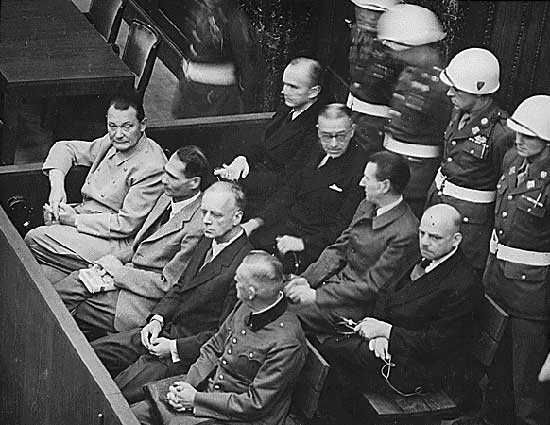 Things closing down 'round here. Last concert of the season last night by Celtic Ensemble (more below), last presentations in seminar class, last pieces of repertoire in undergrad class, solidifying assignments for and (given our perpetual space shortages in a severely overcrowded building) problem-solving next fall's room schedules. Tomorrow brings various end-of-academic-year service obligations (playing banjo for some children's choir, committee work, etc); Saturday the last festival gig. Today we got confirmation on the itinerary, programs, and performance spaces for the China tour, and talked with the Irish Embassy in Beijing re/ some outreach work while there.
Things closing down 'round here. Last concert of the season last night by Celtic Ensemble (more below), last presentations in seminar class, last pieces of repertoire in undergrad class, solidifying assignments for and (given our perpetual space shortages in a severely overcrowded building) problem-solving next fall's room schedules. Tomorrow brings various end-of-academic-year service obligations (playing banjo for some children's choir, committee work, etc); Saturday the last festival gig. Today we got confirmation on the itinerary, programs, and performance spaces for the China tour, and talked with the Irish Embassy in Beijing re/ some outreach work while there.
Kids are burnt--forgotten or sleeping through (or nearly through) obligations, getting sick, breaking down. As I've previously commented, there comes a point in a semester, or for that matter in some kid's degree plan, at which kicking asses (a highly productive and worthwhile activity at other times) is counter-productive and does actual damage. When the kid has done, or not done, everything that s/he is going to, then it's time to help him/her cope with the consequences--the payoffs, if they're going to succeed, or the psychological coping mechanisms, if they're going to fail. So if they sleep through the makeup quiz, or the lecture, or the call time, at this point in the semester you mostly need to help them survive (physically, cognitively, emotionally) and figure that you've gotten as many constructive outcomes as you're going to.
On the other hand, the Celtic Ensemble's concert was remarkable, on both sides of the footlights. I had purposely front-loaded the repertoire, making available a very long roster of "big songs" and dance pieces, allowing the kids to pick particular pieces and instrumental combinations according to who learned what, and so on. I was surprised (and a little non-plussed) by the degree to which I had underestimated their capacity to get things learned. They learned a lot of music.
The result was that we had more than we needed, and I had to finesse which pieces would be included, which deferred, and then, of those included, which would go on the various concert programs. Typically, our fall programs are small and brief (and only presented as part of guest shots at various service performances: Madrigal Dinners, Celtic Christmas, and so on), because the thematic focus I choose for the fall semesters tends to be upon less-familiar Celtic traditions: Breton, Galician, or (next year) Welsh/Cornish. These are beautiful repertoires but they have a much steeper learning curve, either because they are unfamiliar, or make use of relatively obscure languages, or unusual instruments or performance practices, or all of those things. So we save 'em for the fall semester, when there's no pressure for a full-length concert, and when the returning vets have their memorization, improvisation, and learning-by-ear skills already up to snuff. This in turn permits the new year's recruits to get up to speed with these (for classical musicians) very different skills, absent the pressure of preparing a concert program.
In contrast, the spring semester brings the heavier performance schedule: typically a January concert of the fall repertoire, which, with the extra 6 weeks over the holidays, is usually up to snuff for performance; then learning more-familiar (Scottish, English, or Irish) repertoire for a "big" program in late spring semester--typically, around the 3rd week of April. Because that more familiar repertoire involves a less-steep learning curve, I can put more emphasis and responsibility on other factors: trying new roles, heavy memorization (some of those ballads are long, but still have to be memorized), adding-in guest musicians or new instrumental approaches, or even, most fundamentally, diversifying responsibilities. For this particular program, it meant basically allowing anybody who wanted to be the lead singer on one of these big ballads. These are incredibly stark, powerful, almost Beckettian tales of love, loss (usually), and death (almost always), and they make heavy demands on a singer: not so much in terms of vocal technique--like most North European folk melodies, their range is relatively narrow and relatively accessible for an untrained singer--but rather in terms of memorization, as I've said, and even more in terms of focus, audience attention, and narrative intensity. It takes an awful high level of focused concentration just to remember one of these pieces, much less to deliver it, and lead the ensemble, in a fashion that translates in a 500-seat concert hall.
They were aided, last night, by a remarkable and very diverse turnout. Over the past 2 years, the audiences for the Celtic Ensemble have steadily grown, but it's been a very slow incremental process, one wrung-out via the use of every single outreach channel I could brainstorm or extort: repetitive email, websites, newspaper announcements, posters (both electronic and hard-copy), talking-it-up on public radio, and so on. Last night we had what I suspect was a 40-45% bump in numbers, a much wider diversity of demographics (some folks I've never seen at any previous event), and, most interestingly, a very large proportion of other SOM students.
We always do outreach to our own students--several of the Celtic Ensemble kids had commented to me that they didn't think the general SOM population knew "how cool" the ensemble--and we always hit 'em with emails and such. However, last night's much-enhanced turnout of students was a good anecdotal confirmation of the Web 2.0 premise that even email is "old-fashioned", and that kids who are accustomed to being constantly plugged-in via other methods--iPod, cell, text messaging, IM, and/or Twitter--don't even tend to read email. This time, a bunch of the band members had put together a facebook group, specifically for the ensemble, and sent out an automated invitation to something like 150 other students listed as "friends" on facebook. A whole lot of those "poked" kids actually showed up.
All of which would have been reasonably cool: always nicer to play for a larger, more diverse, and (most importantly) intrigued and amused audience. But what was really cool was the reaction of the SOM kids--at least four of whom stopped me in the corridors to say "that was amazing!" or "that's the best ensemble on campus" (hardly true, but indicative of pretty powerful positive vibes) or "that was the best concert I've ever seen!" (same), or, most valuably "Can I sign up for the ensemble for next year?" I don't really know what the hell we did differently than we have done in past concerts, so at least part of this anomalously-effusive new reaction has got be a result of different and desirable new demographics coming into the audience mix. And, we did have a kind of "perfect storm" sufficient to impress music undergraduates: cool and unfamiliar yet accessible music, lots of instrumental firepower of the sort classical kids can grok, wide diversity of shifting roles (singers playing, players singing), lots of interaction and motion and physical fun on-stage, and, perhaps most impressive (for a classical musician) of all: everybody playing nearly everything without a music stand in sight. I'll have more to say about this in tomorrow's post--the profundity of the impact of going "off the book"--but suffice it her to say that playing by memory, and the ability to improvise and interact that can only be achieved through such playing, is certainly the most unfamiliar, and most exhilarating, musical experience that many of these classical kids have ever had or seen. To borrow economic terms: it's a "bottom-up" (from the players to the audience, in the moment) as opposed to "top-down" (from the composer--only slightly down the hierarchy from God, to the conductor, in advance, to the players, doing their jobs like good little factory cogs, to the audience, who are supposed to shut up, sit in the dark, and listen) organization. The former is the model of a jazz group or folk band; the latter is the model of a symphony. For kids who've mostly spent their musical lives as cogs in the Youth and university orchestra machines, what we do seems pretty liberating. And it is.
And then there's the dance: it seems so elemental, so obvious, to say that if you want an audience to appreciate and grow to love a dance music they have to see it danced. It's become a thumbprint of our ensemble: the only SOM ensemble that includes a dance corps. Remarkable, to an uptight New Englander raised in the 1960s, to find a crop of young people who've been two-steppin' or dancing ballet folklorico pretty much since they could walk, and who are not only already good at dancing (I mean: quick enough to pick up three Bampton Morris dances or eight English Country Dances in a single day, two Irish ceili dances in a single session, or a Galician xota from a YouTube video), but also like it. Who will volunteer for it. When I was 20 years old I would do pretty much anything before I would dance--except if there were a female involved, in which case I'd get out there and do my best--but it's still kind of shocking, in a good way, to find kids who'll volunteer.
Result is that we've got a really solid dance corps, and that at any given concert, if I want or need it, we can whip out any one of these previously-learned dances. In turn, it conveys (for a two-steppin' or square-dancin' Texas audience), as nothing else can, what the music was originally intended to do. And when we play our cards right, we can close a concert with a Breton an-dro, and , almost without even an invitation, half the audience will run down from the nosebleed seats and dance it with us. Which breaks all kinds of frames: between audience and performers, between passive observers and active makers, between players versus singers versus dancers versus listeners...all in one glorious communal mass hammering out the rhythms. Some different from a symphony concert.
On second thought, maybe I do understand why those classical kids were so gobsmacked. It's more responsibility, more stress, more unpredictable; but damn is it more fun.
 Last day of the semester.
Last day of the semester.




























![[bush-will-kill-for-oil.jpg]](https://blogger.googleusercontent.com/img/b/R29vZ2xl/AVvXsEhAQk22pH4Wgf-xbPB8hg-Jak0jF1XztSEIEQ-lltpDsA621gFtrNTx0bjS20mfPLHi1akpKGhqiDcvWx6hDI7Cxu5BepfvJ3DwhV42rw5Sr5QtSLmLqKp7Z59YS225awYYo_5U/s1600/bush-will-kill-for-oil.jpg)




